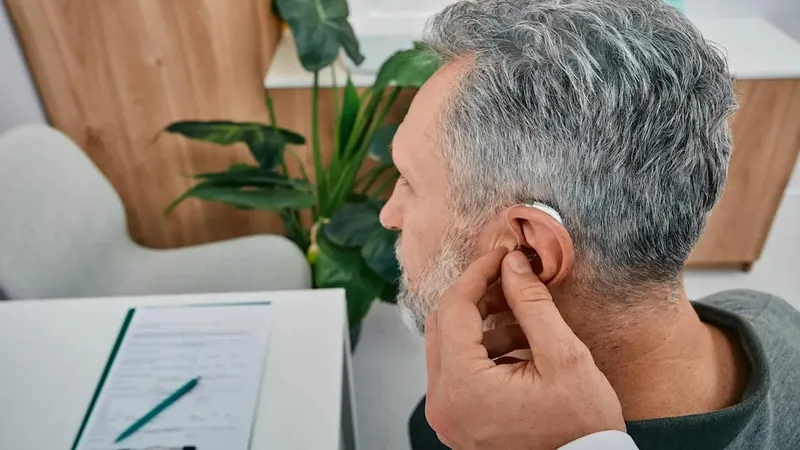
Unlocking Brain Health: How Addressing Hearing Loss Can Slash Dementia Risk
2025-09-04
Author: Ying
The Startling Link Between Hearing Loss and Dementia
A groundbreaking study reveals a powerful health intervention that could dramatically cut dementia risk: addressing hearing loss early. Researchers from prestigious institutions, including the University of Texas and Boston University, have found that adults with hearing loss who wear hearing aids before turning 70 significantly reduce their chances of developing dementia by over 50%.
Key Findings from the Study
Published in JAMA Neurology, this research highlights that individuals under 70 who utilized hearing aids showed a staggering 61% lower risk of developing what the researchers termed 'incident all-cause dementia'. In contrast, those who did not wear hearing devices were more vulnerable. Interestingly, individuals aged 70 and above did not experience the same benefits, stressing the critical importance of early action.
The Research Behind the Conclusion
The study analyzed data from the long-term Framingham Heart Study, which tracked nearly 3,000 participants aged 60 and older over two decades. Alarmingly, 20% of these individuals later developed dementia, with 42% of them being under 70 at the time of their hearing evaluations.
A Call to Action: Treating Hearing Loss
Dr. Gayatri Devi, a neurologist at Northwell Health, emphasizes that 40% of dementia cases are potentially preventable through manageable risk factors such as correcting hearing loss. "Improving hearing enables socializing, a crucial factor that also helps reduce dementia risk," she notes. This simple step not only aids in dementia prevention but enhances overall quality of life.
Understanding the Risks
Age-related hearing loss is a significant risk factor for dementia, as pointed out by health experts. Individuals with hearing loss face a daunting 1.9 times greater chance of developing dementia and are 2.78 times more likely to experience additional cognitive impairments, like memory issues and slower processing speeds.
Recognizing the Signs of Hearing Loss
It's crucial to identify hearing loss early. Signs include difficulty hearing in noisy environments or often asking others to repeat themselves. Dr. Devi advises that if you notice these signs, it's time to consult a healthcare professional.
The Importance of Early Intervention
Early intervention is key, according to Carolyn Bossinas, director of speech and audiology. When individuals with mild hearing loss start wearing hearing aids, they tend to adjust more quickly, making the transition smoother and more beneficial.
Proper Care for Hearing Devices
Once starting with hearing aids, it's essential to properly maintain them. Keep devices dry, change batteries regularly, clean them according to audiologist instructions, and perform frequent listening checks to ensure optimal function.
Don't let hearing loss jeopardize your brain health – act early and stay connected!



 Brasil (PT)
Brasil (PT)
 Canada (EN)
Canada (EN)
 Chile (ES)
Chile (ES)
 Česko (CS)
Česko (CS)
 대한민국 (KO)
대한민국 (KO)
 España (ES)
España (ES)
 France (FR)
France (FR)
 Hong Kong (EN)
Hong Kong (EN)
 Italia (IT)
Italia (IT)
 日本 (JA)
日本 (JA)
 Magyarország (HU)
Magyarország (HU)
 Norge (NO)
Norge (NO)
 Polska (PL)
Polska (PL)
 Schweiz (DE)
Schweiz (DE)
 Singapore (EN)
Singapore (EN)
 Sverige (SV)
Sverige (SV)
 Suomi (FI)
Suomi (FI)
 Türkiye (TR)
Türkiye (TR)
 الإمارات العربية المتحدة (AR)
الإمارات العربية المتحدة (AR)